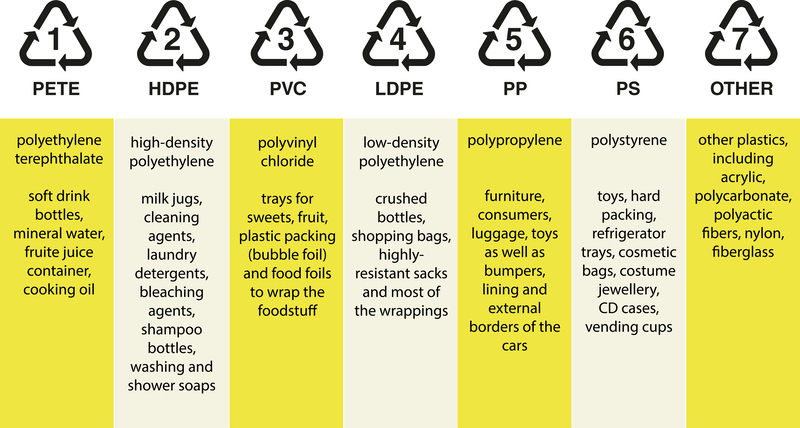Supercharge Your Recycling Game with These Home Tips
Are you ready to become a recycling superstar right from your own living room? It's time to transform your eco-friendly efforts at home and make your recycling routine smarter, easier, and much more efficient. Let's dive into the ultimate guide to supercharging your recycling game with actionable tips and expert strategies!
Why Level Up Your Home Recycling Efforts?
Recycling at home does far more than clear clutter. Every time you sort, rinse, and place materials in the correct bin, you're helping reduce landfill waste, conserving valuable resources, and decreasing pollution. By integrating smart recycling habits into your household, you contribute to a healthier planet and a cleaner community.
Whether you're a recycling rookie or looking to elevate your approach, these top home recycling tips will make your efforts more powerful and rewarding.

1. Set Up a Sturdy, Simple Recycling Station
Creating an organized recycling center is the foundation of effective home recycling. Here's how:
- Choose the right location: Place clearly labeled bins in high-traffic areas: the kitchen, garage, or anywhere waste is generated.
- Use easy-to-clean containers: Rinse bins regularly to avoid unpleasant odors or pests.
- Label everything: Ensure everyone knows what goes where with bold, visible labels (paper, plastics, metal, glass).
This approach minimizes confusion and maximizes participation from family and guests alike.
2. Master the Art of Sorting for Higher Recycling Quality
Not all recyclables are created equal. Many recycling mistakes come from wishful tossing--putting unrecyclable items in the bin in hopes they'll be processed. It's called aspirational recycling and it can ruin entire batches!
Know Your Local Guidelines
- Check your municipality's recycling rules online. Guidelines differ by location and facility!
- Keep a printed guide near your recycling area as a handy reference.
Sort by Category
- Papers: Envelopes, newspapers, magazines (avoid papers with food stains).
- Plastics: Only clean containers, check for local codes (#1 and #2 plastics are often accepted).
- Metals: Aluminum cans, tin cans (remove food residue and labels if possible).
- Glass: Bottles and jars (no ceramics, window glass, or mirrors).
3. Wash and Prep Materials for Better Recycling
A key step in supercharging your recycling at home is prepping items correctly.
- Rinse containers: Leftover food and liquid can contaminate entire batches, causing them to end up in a landfill.
- Remove caps and lids: Some facilities don't accept these attached, check local instructions.
- Flatten boxes: Save valuable bin or bag space by breaking down cardboard and cartons.
4. Avoid the Top Home Recycling Mistakes
Maximize impact by steering clear of these common errors:
- Bagged recyclables: Most recycling centers can't process plastic bags. Always empty recyclables loose in the bin.
- Greasy pizza boxes: Oil or food remnants make cardboard unrecyclable.
- "Tanglers": Avoid tossing in cords, hoses, or clothing--these jam machinery.
- Unmarked plastics: If plastic items lack a recycling code, it's safer to throw them out or find specialty drop-offs.
5. Go Beyond the Blue Bin: Recycle Unique Household Items
Supercharge your recycling game at home by responsibly managing tricky items:
- Batteries and electronics: Never put these in the curbside bin. Use special collection points or retailer take-back programs.
- Old clothing and textiles: Donate, repurpose as cleaning rags, or seek textile recycling facilities.
- Plastic bags and wrappers: Many grocery stores offer return bins for certain plastic bags and films.
- Lightbulbs and hazardous waste: Contact your local waste authority for collection days or drop-off locations.
- Appliances and scrap metal: Local scrap yards or municipal collection sites usually recycle these items.
6. Reduce to Recycle Less
An essential part of supercharged recycling is reducing what needs recycling in the first place. Practice conscious consumption to cut down on future waste:
- Buy products with minimal or recyclable packaging.
- Choose reusable containers, bags, and bottles.
- Decline single-use plastics whenever possible.
- Invest in quality items designed to last longer.
- Embrace upcycling--turn glass jars, tins, or boxes into clever organizational tools or decor.
Every small change adds up to significant reductions!
7. Compost Organics for a Greener Home
Don't forget about food scraps and yard trimmings. Composting amplifies your recycling efforts and returns nutrients to the soil.
- Start a kitchen compost caddy: Collect produce peels, coffee grounds, eggshells, and more. (No meat, dairy, or oils!)
- Use the compost in gardens: Enrich your soil and reduce dependence on store-bought fertilizers.
- Consider municipal pickup: Some cities offer organic waste collection.
8. Educate and Involve Your Household
Recycling works best as a team effort! Involve everyone in your home--kids, roommates, or partners--by making recycling accessible and fun.
- Hold a recycling challenge to see who can reduce waste the most.
- Create colorful charts or stickers for sorting reminders.
- Teach children about the impact of waste and recycling.
Shared responsibility leads to lasting eco-friendly habits.
9. Stay Updated and Advocate for More Recycling Options
Recycling policies and technologies evolve rapidly. Stay informed on new programs, local updates, and global trends to further enhance your recycling at home.
- Follow local government websites or social media for recycling news.
- Pitch new programs to homeowners' associations or local officials, like compost pickups or better electronics collection.
- Support businesses offering packaging take-back or sustainable alternatives.
10. Recycle Right When On-the-Go
Your supercharged recycling doesn't stop at your doorstep! Extend these habits elsewhere:
- Carry a reusable bag and bottle.
- Look for recycling stations when out shopping, at work, or traveling.
- Bring home recyclables if there are no bins available.
A little effort extends your recycling impact far beyond home.
Pro Tips to Supercharge Your Recycling Game at Home
- Track your progress: Set monthly waste reduction goals and celebrate zero-waste victories!
- Host a recycling cleanup: Organize neighborhood recycling days or litter-pickup events.
- Share knowledge: Post about your recycling successes and tips on social media to inspire others.
- Gift green: Choose eco-friendly gifts and wrapping to encourage sustainable habits.
Get Creative with Reuse and Upcycling
See recyclables as resources! Combine recycling with creative reuse:
- Glass jars: Perfect for bulk pantry storage, as planters, or craft organization.
- Cardboard boxes: DIY crafts, kid's playhouses, or drawer organizers.
- Old clothes: Quilt patches, pet toys, or braided rugs.
- Plastic bottles: Bird feeders, watering cans, or hanging gardens.
Upcycling not only reduces waste, but saves money and sparks creativity!
Conclusion: Boost Your Eco-Impact with Home Recycling Habits
Supercharging your recycling game at home doesn't require perfection--just commitment and creativity. Start with small, sustainable changes and stack new habits over time. Empower your housemates, share tips in your community, and celebrate every environmental win.
By adopting these home recycling tips, you play a crucial role in conserving resources, supporting the recycling industry, and fighting climate change--one bin at a time!
Ready to make recycling second nature? Implement these supercharged strategies and watch your eco-friendly impact soar!

Frequently Asked Questions About Home Recycling
1. Should caps and labels be removed from bottles before recycling?
It depends on your local facility. Many want caps removed and labels left on. Always check municipal guidelines.
2. Are pizza boxes recyclable?
Only if free of oil and food residue! Otherwise, compost the clean parts, discard the rest.
3. Where can I recycle batteries and electronics?
Most cities host hazardous waste collection events. Retailers often offer take-back bins for small electronics and batteries.
4. How clean do recyclables need to be?
"Clean enough" means no visible food or drink residue. Quick rinsing is usually sufficient.
Boost Your Environmental Impact--One Bin at a Time!
By following these comprehensive strategies, you'll supercharge your home recycling routine, encourage others, and contribute to a greener tomorrow. Start your enhanced recycling journey today and make a lasting difference from the comfort of home.